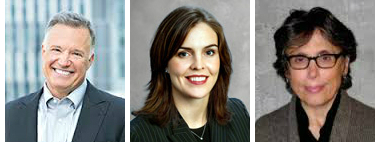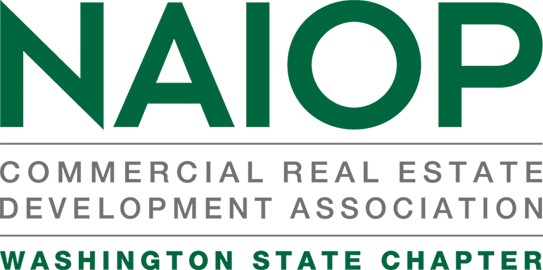Broker Panel: Diversity Boosts Seattle Real Estate Forecast [April Breakfast Recap]
In a very highly attended event, the annual Broker’s Forecast was presented to our Breakfast attendees on April 20. The breakfast was sponsored by Adolfson & Peterson, Norris, Beggs & Simpson, CBRE and Intervest - we sincerely thank them for their continued support. President John Teutsch began the meeting and gave the assembly an update on new members and introduced Kris Beason who gave some background on Adolfson & Peterson. Mike Wood also spoke a few words about Norris, Beggs & Simpson. We heard about the Community Enhancement Project which will be on September 24 at the New Start High School in Burien.


Doug Howe introduced Tom Bisacquino, President & CEO of NAIOP Corporate, who gave us an update on what was being done legislatively in DC.
Bill Pollard, Co-Founder & Principal at Talon Private Capital, moderated our panel and he introduced our esteemed panelists:
- Scotta Ashcroft – First Vice President at CBRE
- Wilma Warshak – Senior Managing Partner and Founder at Washington Real Estate Advisors
- Craig Kinzer – Founder at Kinzer Partners
Bill’s first question, “What got us to this great market and what is sustainable?” took the panel in a slightly different direction (rather than just the numbers), which led to an interesting exchange of ideas.
Wilma answered that the Seattle area attracts great talent who come here for the quality of life. We are fortunate to have two deep water ports. She addressed the sustainability question by stating that our local economy has many pillars of support. While we are not immune from national and global events, the fact that our economy is so diversified will insulate us better than other markets from these events.
Craig agreed with Wilma that diversification is the key to our continued robust economy. He said that the marketplace has changed and that the physical growth is now requiring less space than in the past.
Scotta used the dreaded “B” word – she opined that we are in a bit of a bubble but that she is cautiously optimistic that growth in this market is sustainable, although maybe not at the pace we have seen over the last couple of years.
The audience question that generated the most comment was about supply and demand. Scotta stated that we have 3.3 million square feet coming online over the next couple of years and her feeling is that we are not oversupplied with that coming online. Wilma spoke to congestion and availability of land as being potential concerns going down the road.
Bill asked the panelists to comment on how employees, especially millennials, are changing the market. Craig made mention that it is not just millennials, but all participants in this market are impacted by the proliferation of technology. He spoke about how companies are becoming flatter and that employees are doing more for their organizations. This is a great definition of the knowledge worker.
There was a lively discussion about the shortcomings of our educational system and that pay alone is not the determining factor in an employee’s choice of employer. The culture of a company is critically important and this is illustrated by the fact that the CFO no longer leads the charge for new space; rather it is the HR department. Millennials especially put a quantitative value on the working environment. Wilma, who spends more time in the industrial market, gave insight to the differences in looking at labor in that sector. Scotta spoke of the need to create places rather than spaces. Some examples of this are:
- The need for showers
- Biking accommodations
- Fitness center requirements
- Uber and Flex car needs
- Vibrant food choices
The panel fielded a question from the audience as to how all of this affects rent. Scotta indicated that shared amenity spaces can reduce a tenant’s expenditure. Craig said that slightly higher rents are tolerated as long as the need for place rather than space is addressed.
Bill concluded the panelist’s portion of the meeting with a question about transportation and technology impacts on tenants. Scotta responded that reliability of transportation is key for employees and that ride sharing is growing. Wilma stated that for the industrial tenant, throughput and speed have become the highest priority.
John Teutsch concluded the meeting. It was great to hear from our panelists on these important questions. Cautious optimism appears to be the watchword for the next year.
This article was written by NAIOP Washington State and Programs Committee member Edward Scherer, Account Executive, Avidex Industries, LLC.
Download PDF presentations and information from this meeting:
- CBRE Puget Sound MarketView Q1 2016
- Read the recap from Seattle Daily Journal of Commerce
